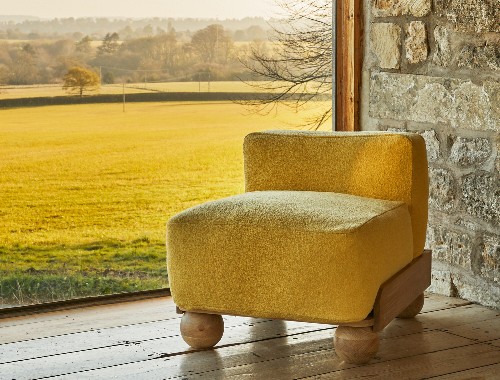HIGH POINT – New factory orders for furniture rose 2% in January compared with the same month last year, according to the latest Furniture Insights survey of residential furniture manufacturers and distributors by the High Point accounting and consulting firm Smith Leonard.

January 2015 orders had risen 7% over the prior year, so the most recent increase was compared with a relatively strong prior-year period.
New orders were up for only 32% of survey participants, down from about 50% reporting increases last month.
January shipments were off 1% from January 2015, the first decline in shipments since February of 2014. But January 2015 shipments were up 10% over January 2014, so the decline was against a strong prior-year period. Only 24% of the participants reported increased shipments over January 2015.
Backlogs were flat compared with January 2015, when they were 16% higher than January 2014.
Receivables fell 4% from January 2015, after shipments declined 1%. Receivables were down 1% from December 2015 after a 9% decline in shipments from December.
“We suspect that this results from some timing issues so we will watch again with next month’s results,” Smith Leonard Managing Partner Ken Smith said in the survey report.
Inventories increased 2% from December, but were 6% higher than January 2015.
“This was up from a 5% increase reported last month,” Smith said. “With business slowing down, it appears that inventories are tending to be a bit high, but not too concerning at least for now.”
Factory and warehouse payrolls fell 4% from January 2015 and were down 10% from December.
“Some of the decline from December may have been weather-related as there were some shutdowns for weather,” Smith said.
Factory and warehouse employment was flat compared with December and up only 1% from January 2015.
In summary, Smith said that most survey participants believe that business slowed during the fourth quarter and has continued to slow, especially in February and March.
“Most of the normal indicators for furniture remain good – low interest rates, decent housing results (maybe not back to all-time highs, but solid results) low inflation and gas prices,” Smith said. “Business has been affected by slower business in the oil producing states and some weather-related conditions.
“Stock market volatility and negative national news, especially the negative political talk, seem to keep people unsure. If you listen to the candidates, everything is wrong with the country. Yet, when most people look around, things are not that bad for most. One client, when we were discussing the cause of the slowdown, suggested it could be caused by some underlying thing that we don't even know what it is. I suggested that was spooky.”
Smith added that he’d happened across an article written in 1982 by Glenn Goodwin, a former partner of his at Seidman & Seidman. In the article, Goodwin noted that “housing starts have been severely depressed for the last few months. It said that in 1981 housing starts for the year were 1,086,000 units, the lowest rate of construction since 1959.”
“Housing starts in 2015 were 1,111,800,” Smith said. “The most recent peak was 2,068,000 in 2005 with the valley at 554,000 in 2009. So needless to say, housing starts have not been our friend since the beginning of the recession.”



























 沪公网安备31010402003309号
沪公网安备31010402003309号